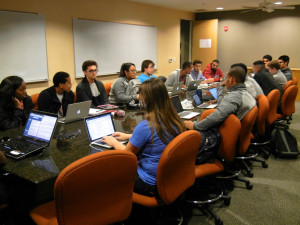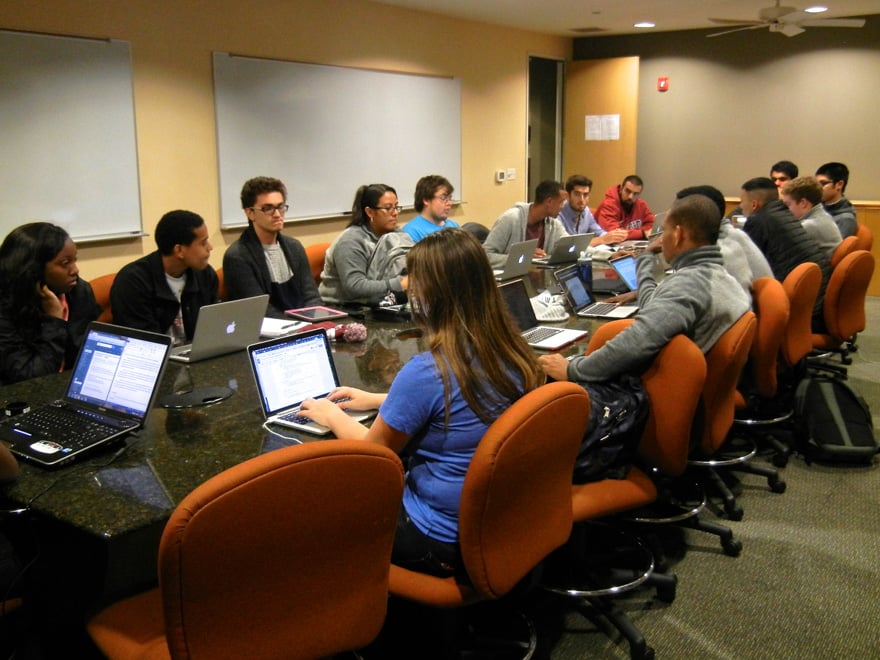
In its fourteenth meeting on Tuesday night, the ASSU Undergraduate Senate discussed upcoming changes to Stanford’s sexual assault adjudication process, approved funding for several student groups and postponed voting on a prospective bill.
According to ASSU president John-Lancaster Finley ’16 and vice president Brandon Hill ’16, Stanford is proposing a new process for sexual assault adjudication to replace the current system, the Alternate Review Process. There will be a month-long public comment period during which the student body may review the suggested changes. The changes include undergraduates no longer participating in judicial panels as well as the right to an attorney (paid for by Stanford if necessary). Finley encouraged members of the Senate to read the proposed changes carefully in order to offer meaningful opinions and critiques.
“My personal opinion is that it’s actually a really, really good improvement on the old system… both for protection of survivors in the process as well as students who are responding to allegations of sexual assault,” Finley said. “The legitimacy of the process is absolutely central to making sure survivors are supported.”
The pair also encouraged the Senate to attend the Town Hall meeting this Friday at 8 a.m. in Arrillaga Dining with Provost Etchemendy to discuss the changes.
“Making sure that you’re in direct dialogue and conversation with the provost and other relevant administrators is super important,” Finley said. “We want to make sure every opinion is heard.”
Members of three different student groups attended the meeting to discuss funding requests. The Stanford Gospel Choir requested funding for transportation to performances and a retreat, the Quiz Bowl Club requested funding to cover an increased registration fee to an intercollegiate conference and Students for Alternatives to Militarism requested funding to host a speaker for Palestinian rights. All three requests passed unanimously.
The Senate also postponed voting on a bill that would address fairness of language in student petitions. Matthew Cohen ’18, Administration & Rules Committee chair, explained that the committee plans to meet with the bill’s author this week to confirm details before the Senate votes. A student observing the meeting, Saj Sri-Kumar ’16, jumped in to address his concern about the bill.
“As the elections commissioner from last year , I’m not 100 percent sure this is allowable,” Sri-Kumar said. “Petitions are written into the constitution.”
The Senate then voted unanimously to end the discussion of the bill. They will discuss it thoroughly next week.
Finley and Hill also brought up the recent events at the University of Missouri, emphasizing the importance of student voices in changing social issues. In particular, Finley asked the Senate to pay attention to issues of racism and sexual assault on college campuses everywhere and to use their positions to aid positive change.
“There’s power in student government; there’s power in student voice; there’s power in student leadership… that’s what we’ve seen across the country over the past week,” Finley said. “There’s no reason it can’t happen at Stanford.”
“Get involved, because I think the country needs you right now,” he added.
Contact Fiona Kelliher at fionak ‘at’ stanford.edu.
